
 i_need_contribute
i_need_contribute

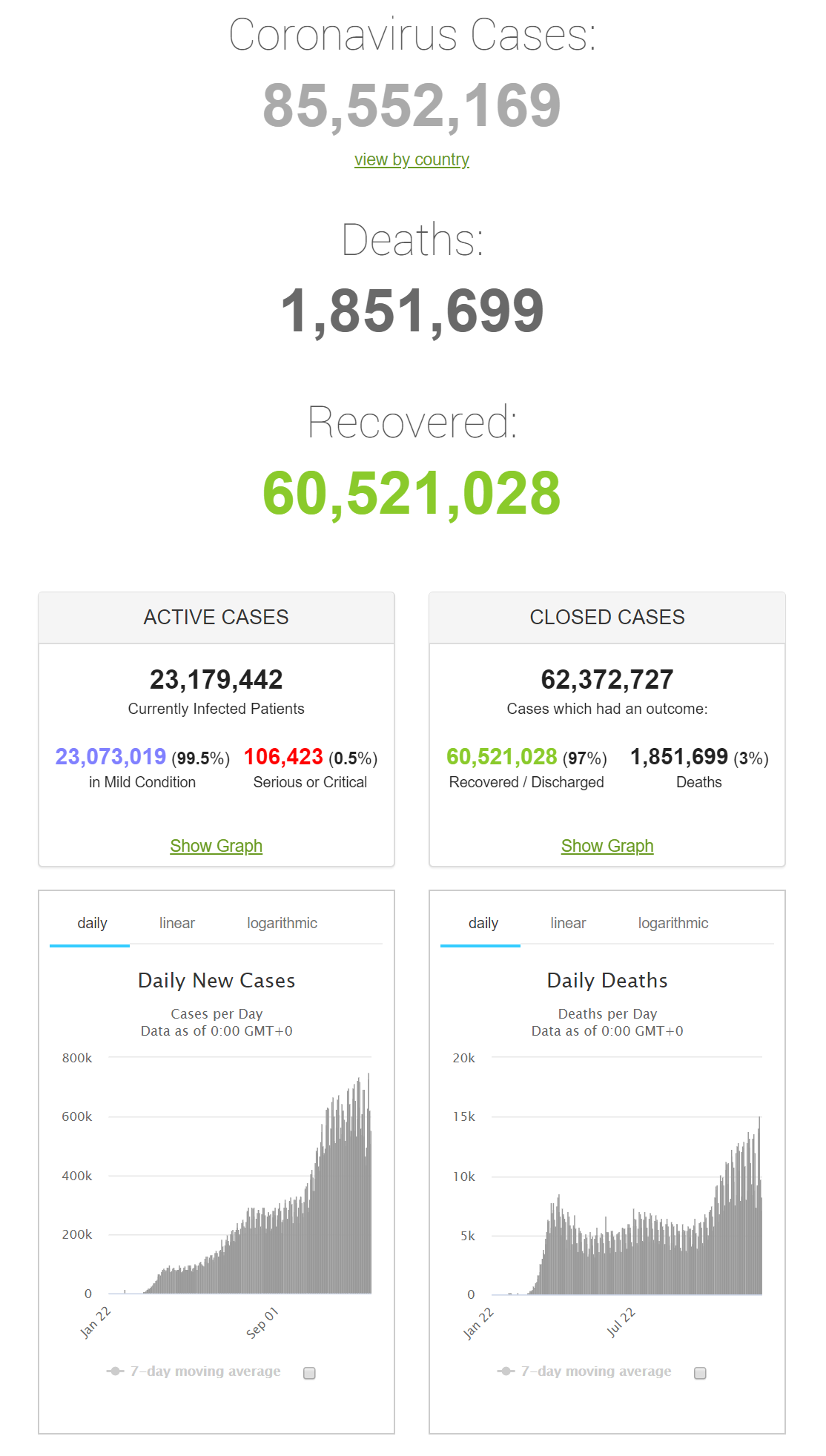
|
Country, |
Total |
New |
Total |
|
World |
85,494,699 |
+510,153 |
1,850,212 |
|
21,113,528 |
+194,337 |
360,078 |
|
|
10,341,291 |
+16,660 |
149,686 |
|
|
7,733,746 |
+17,341 |
196,018 |
|
|
3,236,787 |
+24,150 |
58,506 |
|
|
2,655,728 |
+12,489 |
65,037 |
|
|
2,654,779 |
+54,990 |
75,024 |
|
|
2,241,912 |
+9,877 |
21,488 |
|
|
2,155,446 |
+14,245 |
75,332 |
|
|
1,936,718 |
+15603 |
50,837 |
|
|
1,783,896 |
+10,356 |
35,105 |
|
|
1,675,820 |
+9,412 |
43,965 |
|
|
1,640,718 |
+5,884 |
43,482 |
|
|
1,443,544 |
+6,359 |
126,851 |
|
|
1,318,562 |
+5,739 |
29,119 |
|
|
1,243,434 |
+5,960 |
55,540 |
|
|
1,100,748 |
+11,859 |
29,577 |
|
|
1,074,093 |
+4,576 |
18,854 |
|
|
1,019,475 |
+1,376 |
37,830 |
|
|
821,163 |
+7,398 |
11,612 |
|
|
765,350 |
+6,877 |
22,734 |
|
|
740,481 |
+4,957 |
11,960 |
|
|
649,169 |
+880 |
19,644 |
|
|
640,429 |
+3,034 |
15,979 |
|
|
618,191 |
+2,289 |
16,767 |
|
|
601,663 |
+11,383 |
15,865 |
|
|
597,774 |
+741 |
12,834 |
|
|
516,019 |
+835 |
7,626 |
|
|
486,634 |
+2,272 |
10,311 |
|
|
477,807 |
+891 |
9,257 |
|
|
443,146 |
+1,005 |
7,485 |
|
|
438,869 |
+4,070 |
3,416 |
|
|
427,254 |
+3,384 |
7,118 |
|
|
365,768 |
+1,466 |
6,324 |
|
|
363,061 |
+82 |
6,246 |
|
|
343,870 |
+1,966 |
3,325 |
|
|
327,995 |
+1,307 |
9,884 |
|
|
298,208 |
+1,540 |
3,903 |
|
|
261,859 |
+421 |
1,878 |
|
|
253,736 |
+1,972 |
4,140 |
|
|
240,954 |
+2,942 |
3,548 |
|
|
229,169 |
+417 |
2,603 |
|
|
220,265 |
+803 |
2,733 |
|
|
214,614 |
+101 |
14,059 |
|
|
213,231 |
+1,590 |
679 |
|
|
212,958 |
+696 |
4,072 |
|
|
203,051 |
+171 |
7,678 |
|
|
199,962 |
+1,837 |
1,451 |
|
|
189,278 |
+2,870 |
1,499 |
|
|
187,463 |
+1,219 |
2,317 |
|
|
Dominican |
173,331 |
+366 |
2,418 |
|
168,711 |
+1,170 |
1,374 |
|
|
162,055 |
+1,070 |
9,186 |
|
|
160,027 |
+229 |
2,850 |
|
|
156,934 |
+714 |
2,262 |
|
|
151,343 |
+269 |
937 |
|
|
146,637 |
+1,239 |
1,643 |
|
|
145,873 |
+179 |
3,037 |
|
|
144,437 |
+197 |
245 |
|
|
143,544 |
+1,565 |
4,800 |
|
|
142,187 |
+1,309 |
7,805 |
|
|
141,219 |
+932 |
1,470 |
|
|
140,099 |
+390 |
4,957 |
|
|
138,475 |
+159 |
4,833 |
|
|
129,404 |
+537 |
1,501 |
|
|
126,345 |
+729 |
2,728 |
|
|
125,622 |
+573 |
1,948 |
|
|
125,086 |
+726 |
2,803 |
|
|
123,144 |
+170 |
3,173 |
|
|
119,077 |
+1,704 |
494 |
|
|
114,230 |
+147 |
1,034 |
|
|
109,073 |
+355 |
2,292 |
|
|
101,887 |
+4,961 |
2,259 |
|
|
101,414 |
+670 |
1,510 |
|
|
100,408 |
+249 |
2,772 |
|
|
96,802 |
+124 |
1,685 |
|
|
93,478 |
+294 |
352 |
|
|
90,080 |
+917 |
1,311 |
|
|
87,117 |
+24 |
4,634 |
|
|
84,024 |
+235 |
2,530 |
|
|
81,305 |
+91 |
1,359 |
|
|
77,231 |
+49 |
614 |
|
|
63,244 |
+657 |
962 |
|
|
59,438 |
+447 |
1,193 |
|
|
58,697 |
+35 |
29 |
|
|
55,168 |
+104 |
335 |
|
|
50,716 |
+450 |
436 |
|
|
49,195 |
+339 |
689 |
|
|
46,919 |
+81 |
506 |
|
|
46,803 |
+288 |
1,358 |
|
|
7,694 |
+315 |
64 |
|
|
6,393 |
+50 |
123 |
|
|
5,564 |
+32 |
49 |
|
|
1,494 |
+12 |
35 |
Retrieved from: https://www.worldometers.info/coronavirus/
From CNN’s Arnaud Siad in London
The French government aims to vaccinate 26 million French people against Covid-19 “by the summer,” France's Transport Minister Jean-Baptiste Djebbari said on Sunday, speaking to CNN’s affiliate BFMTV.
His comments come amid criticism that France is lagging behind countries like the United Kingdom and Germany in the numbers of people having received a first dose of the vaccine.
“Right now we have 500,000 doses [of the Pfizer/BioNTech vaccine] arriving each week and we have already secured the contract for hundreds of thousands of doses per week for other vaccines whose use will be rapidly approved,” he said.
The official added that the Oxford/AstraZeneca and Moderna vaccines will be also approved by the European Medicines Agency “in the coming days.”
French Health Minister Olivier Veran announced on Twitter on Thursday an acceleration of the vaccination campaign against Covid-19 in France.
“We have decided, at the same time, to accelerate the protection [against Covid-19] of priority groups. As of Monday, healthcare workers aged 50 and more, on a voluntary basis, will be able to get vaccinated in centers that already have the vaccine,” he announced.
“We know how to do mass vaccination,” Veran added, citing 1.5 million flu vaccines delivered in the country on the first day of the vaccination campaign last year.
From CNN's Tara John in London
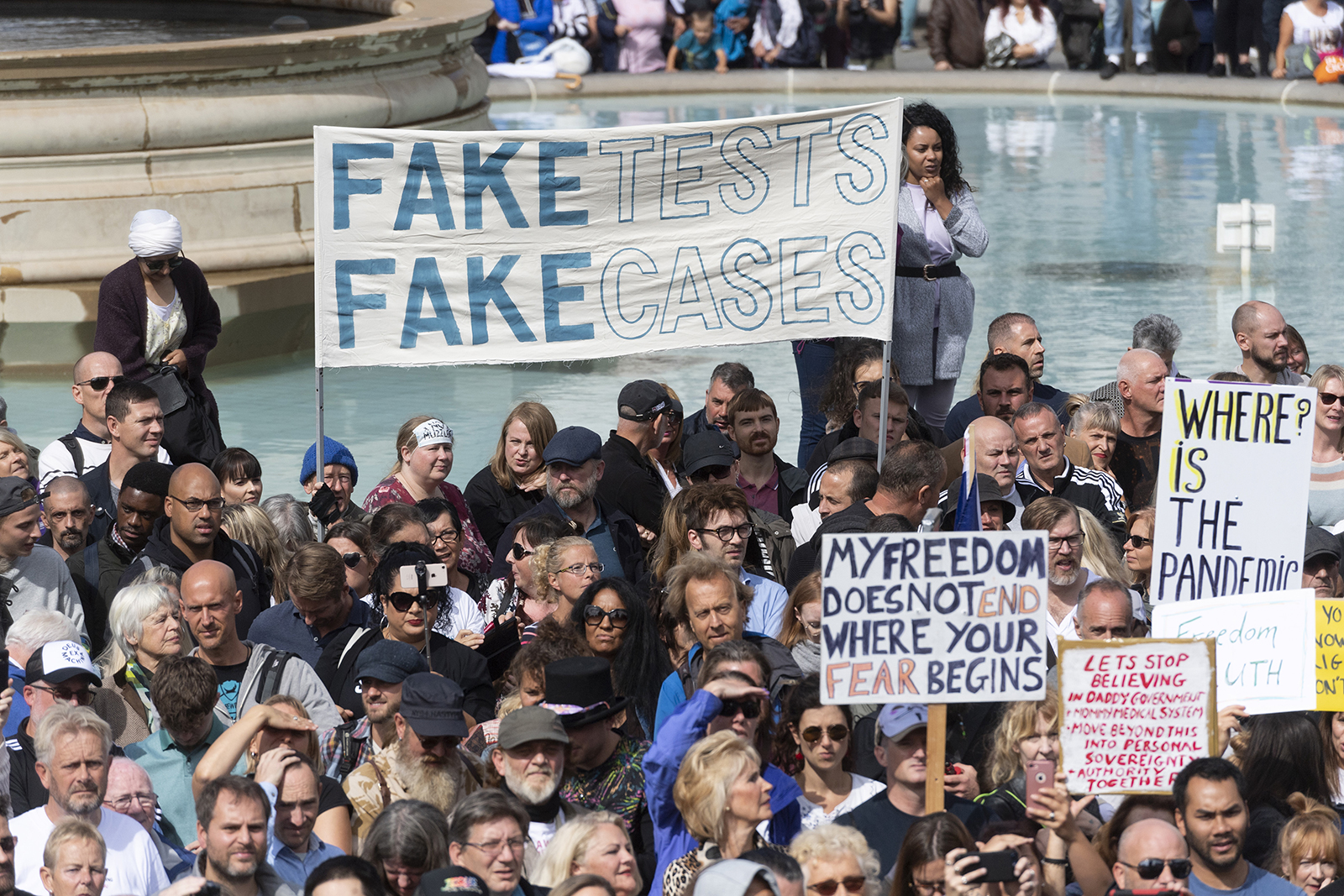
Protesters holding placards as they take part in a demonstration in Trafalgar Square organized by the group Stand Up X in London, on August 29, 2020. Stringer/Anadolu Agency/Getty Images
At a recent Saturday protest outside London's Stratford train station -- comprised of bindi-wearing hippies, conspiracy theorists in balaclavas, and middle-aged men in waterproof jackets -- a protester with the grassroots, anti-lockdown group StandUpX yelled into a megaphone.
"The vaccine is there to make you infertile... that vaccine is just going to make them able to control you," they shouted.
Listening to the dangerously false spiel was 24-year-old Rebekah, who we are only identifying by her first name. A survivor of domestic abuse, Rebekah said she was living in a Manchester safe house when the first UK-wide lockdown began in March. "If I was still living at home [with her abuser] in lockdown, I probably would have died," she told CNN.
But Rebekah's concerns about the crushing social and economic effects of pandemic restrictions took a conspiratorial turn after she read an Instagram post that she said made her question "information shared by the media." She researched the matter online, churning up information that, while not supported by facts, nonetheless backed up her growing suspicions.
Conspiracy theories spread: Many conspiracy theories have found legs during the pandemic, and one of the first ones that Rebekah found was the widely debunked claim that Microsoft co-founder Bill Gates was profiting from coronavirus vaccines.
There's no evidence Gates or his foundation will profit from the Covid-19 vaccines, according to PolitiFact, a nonpartisan fact-checking operation.
In 2021, experts fear this alternative, fact-free universe will fuel hesitancy in taking the vaccine, a vital weapon in the fight against the virus.
"To beat Covid-19, we also need to defeat the parallel pandemic of mistrust that has consistently hindered our collective response to this disease," Francesco Rocca, president of the International Federation of Red Cross and Red Crescent Societies, warned in a virtual briefing to the UN Correspondents Association on November 30.
From CNN's Eric Cheung in Hong Kong
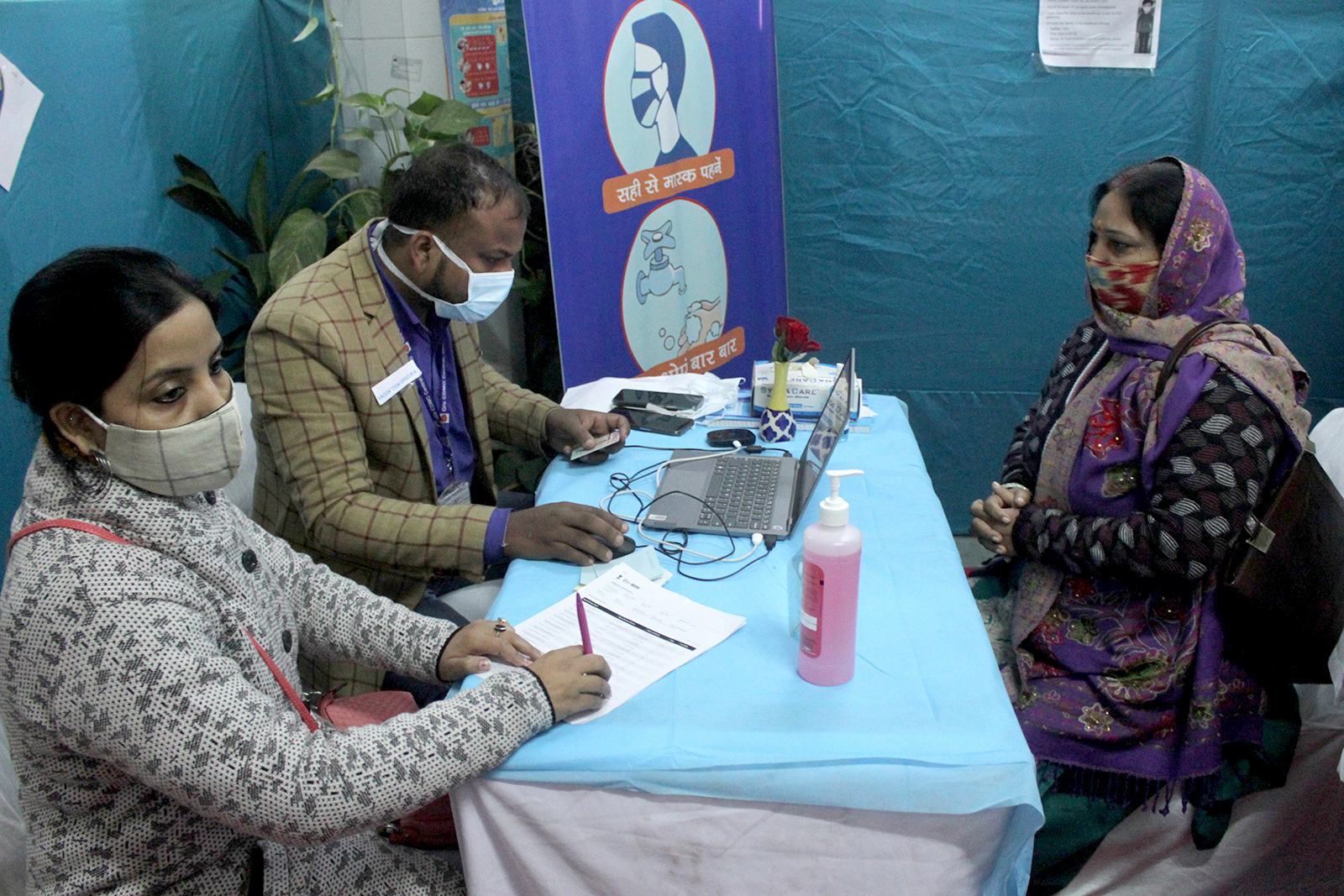
A vaccination officer registers a volunteer during a mock drill for Covid-19 vaccine delivery at a healthcare center in New Delhi, India on January 2. Mayank Makhija/NurPhoto/Getty Images
India conducted a nationwide Covid-19 vaccine drill Saturday ahead of plans for mass vaccinations, India's state-run broadcaster Doordarshan has reported.
The drills come as India moved to formally approve two Covid-19 vaccines for emergency use, one made by AstraZeneca and Oxford University and the other developed locally.
India has reported the second highest number of coronavirus infections, trailing only the United States.
The first phase of India's vaccination plan covers almost as many people as the entire US population.
The drill was conducted at 286 sites across India, and was aimed at familiarizing officers on all levels with the operational guidelines, Doordarshan said.
Some 114,100 workers have been trained on tasks such as verifying personal data, conducting cold chain and logistics management, and uploading information using government software, it added.
The Indian government has been planning a massive vaccination drive amid the Covid-19 pandemic. In the first phase, authorities are aiming to vaccinate 300 million people, including health care workers, police, soldiers, and vulnerable groups, such as citizens above the age of 50 and those with serious comorbidities.
From CNN Health’s Elizabeth Cohen
Even though coronavirus vaccines are being rolled out, 2021 is still going to be tough, a top WHO official said Sunday.
“I think it’s going to be a difficult year ahead and we’re going to have to have patience and stay the course,” Maria Van Kerkhove, the WHO’s technical lead for coronavirus response, told CNN Senior Medical Correspondent Elizabeth Cohen.
The first part of the year will be difficult because in many countries, people did not heed advice to stay home over the holidays.
“We’re in for a bit of a rough start to 2021,” Van Kerkhove said, noting that “movement and the behavior of people” over Christmas and New Year’s “are going to make the first three months of 2021 quite difficult in terms of increased transmission, hospitalizations, and deaths.”
She added that the vaccines won’t be a quick fix.
“I think it’s going to be frustrating and slow to roll out -- slower than anyone would like,” she said. “The first six months of the year are going to be painful for people because they just want it to be done and we really need people to have the patience to get through it.”
Van Kerkhove noted that people will still need to wear masks, practice social distancing, and avoid crowds well into the year.
Return to normalcy: The United States and other countries seeing Covid-19 surges could get back to normal -- or something resembling normal -- in the summer or fall, Van Kerkhove said.
She noted that while some countries in the Americas and Europe are seeing surges, Australia, New Zealand, and some other nations in Asia and Africa have had more success at controlling the spread of the virus.
“We’ve seen countries bring this virus to its knees, without vaccination,” she said. “In many countries they have that semblance of being back to normal.”
She said those countries have been more successful at testing for the virus, isolating sick people, contact tracing, quarantining people who’ve been exposed, and persuading people to work and shop from home.
Retrieved from: https://edition.cnn.com/world/live-news/coronavirus-pandemic-vaccine-updates-01-04-21/index.html
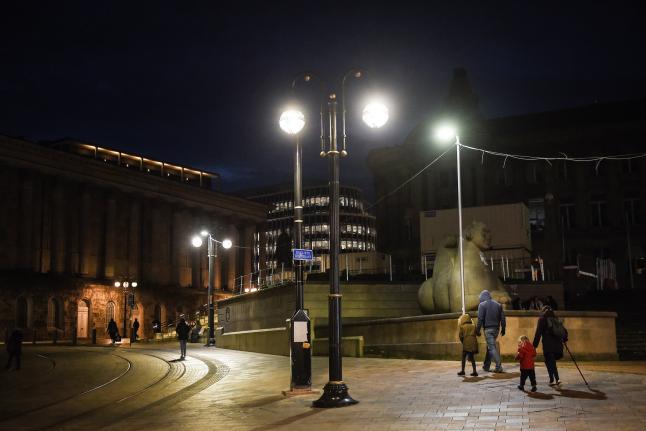
In Birmingham, England, last month. Britain is facing a surge in coronavirus cases and hospitalizations, in part because of a new virus variant.Credit...Mary Turner for The New York Times
LONDON — Parts of England may face harsher restrictions in the coming weeks, Prime Minister Boris Johnson said on Sunday, as Britain confronts a surge in coronavirus cases and hospitalizations linked to a new, more transmissible virus variant.
But with classes set to resume and his government’s plans for in-person teaching under increasing pressure, he also urged parents to send their children to school.
Mr. Johnson said in an interview with the BBC’s “Andrew Marr Show” that he was “fully reconciled” to implementing more restrictions and that the government had taken “every reasonable step” to prepare for the winter. He said that ministers could not have predicted the emergence of the new variant, which has led dozens of governments to restrict travelers from Britain, and that he hoped more vaccinations would lead the country out of lockdowns.
Britain was the first country to give emergency authorization to the vaccine developed by Pfizer and BioNTech and then, last week, one from AstraZeneca and the University of Oxford.
With classes set to return in many primary schools in England on Monday, Mr. Johnson added that parents should “absolutely” send their children to schools if possible. “We’ve really fought very hard in this pandemic across the country to keep schools open,” he said. “Schools are safe.”
The government had planned for primary schools across England to reopen on Monday, with secondary school students returning later in phases, but it moved last week to delay opening primary schools in parts of London and southeastern England, where the new variant first took off. The delay was extended to cover all of London late last week.
Teaching unions have opposed a return to in-person schooling, and on Saturday the largest, the National Education Union, advised primary-school teachers to stay home and offer to conduct lessons remotely. “The science now tells us that, although children largely do not become ill with Covid-19, they spread it to others,” the union said in a statement.
Retrieved from: https://www.nytimes.com/live/2021/01/03/world/covid19-coronavirus/boris-johnson-braces-uk-for-more-restrictions-but-seeks-to-keep-schools-open
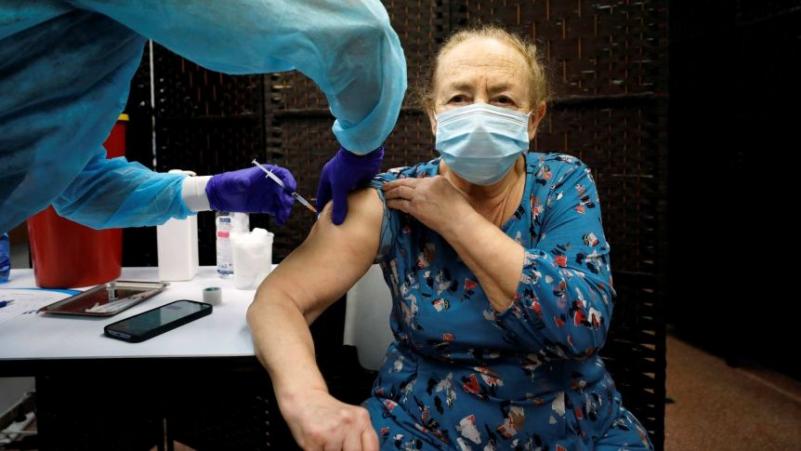
Israel has the highest proportional rate of COVID-19 vaccine administration worldwide as countries race to inoculate their citizens against coronavirus.
Oxford University's Our World in Data has produced a global tracker of the rate of vaccination reported by governments worldwide, comparing nations across the total number of doses administered, the proportional rate of vaccination administration and the rate of daily vaccinations.
The tracker shows the number of COVID-19 vaccination doses administered, not the number of people that have been vaccinated, which typically requires two doses of a vaccine.
According to figures released by the Israeli Government, 11.5 out of every 100 Israelis have received a first dose of the Pfizer/BioNTech vaccine, up to January 1, 2021.
The country with the closest rate of proportional administration is Bahrain, with 3.53 out of every 100 citizens receiving the SiThe global tracker shows of the 11.41 million vaccinations reported worldwide, China has administered doses to the most people (4.5 million), with the United States providing shots to the second most (4.23 million).
China administered three different vaccines (two developed by CNBG and one by Sinovac Biotech) to essential workers and others at high risk of infection from July last year.
A vaccine for general public use, developed by state-backed pharmaceutical company Sinopharm, was approved late last month.
While politicians have raised concerns about the speed of vaccinations in the US, the country is reporting the highest daily rate of vaccine administration worldwide, with 325,882 Americans receiving shots of either the Moderna or Pfizer/BioNTech vaccines on January 2, 2021.
France had administered doses of the Pfizer/BioNTech to only 352 people by New Year's Eve when the last data on vaccinations was reported.
The BBC reports that France's slow rate of inoculation may be due to widespread scepticism in the country about coronavirus vaccination.
According to an Ipsos Global Advisor poll released last month, just 40 per cent of French respondents said they would be willing to have a vaccine for the virus.
This compares to 80 per cent in China, 75 per cent in Australia and 69 per cent in the US.
A coronavirus vaccine has not been approved in Australia, but Prime Minister Scott Morrison reiterated last week a rollout of vaccinations would begin in March, as planned.
Retrieved from: https://www.abc.net.au/news/2021-01-03/israel-leading-global-race-to-vaccinate-against-coronavirus/13028374
Elle Hunt in Auckland
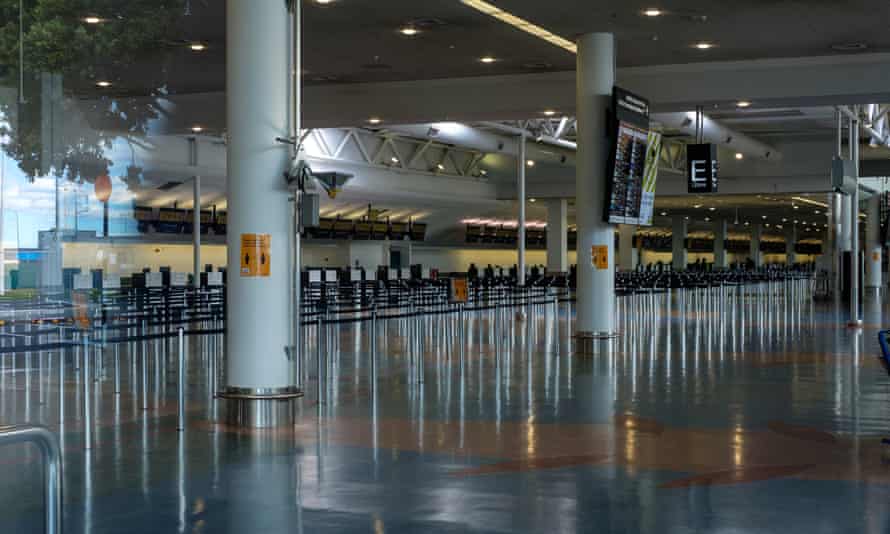
New Zealanders trying to return home now have to wait over two months due to lack of space in managed quarantine facilities Photograph: Bradley White/Getty Images
New Zealand has further tightened border controls amid mounting anxiety about the new strain of coronavirus driving up infections overseas.
Six cases of the new variant of the virus – five in arrivals from the UK and one from South Africa – were recorded in managed isolation facilities in the two weeks leading up to Christmas.
Travellers to New Zealand from the US and UK will now be required to show a negative test for Covid-19 before departure, as well as taking a test on their arrival in quarantine in addition to those on days three and 12. The border remains mostly closed to non-citizens.
The Ministry of Health said in a statement on Sunday that these were “extra precautionary steps [to] provide another layer of protection” against the new strain of coronavirus, recorded in more than 30 countries.
Though there has been no community transmission of coronavirus in New Zealand since 18 November, Auckland University microbiologist Siouxsie Wiles said the new variant – which is reported to be more infectious – would challenge the country’s safeguards. “If there are any chinks in the chain, it will find them,” she told Stuff.
For New Zealanders in the UK and the US wanting to come home, the new requirement to obtain a test is an additional barrier on top of flight cancellations and the long wait for a vacancy in quarantine.
The vast majority of the 5,800 spots in the 32 managed isolation and quarantine (MIQ) facilities across New Zealand were occupied over Christmas and New Year in Kiwis’ rush to return. Stuff reports that the earliest available vacancy was in mid-March.
Though spots do become available at last minute, the date of arrival at MIQ needs to be matched against a confirmed flight booking, though according to Stuff, the government is set to relax this somewhat due to ongoing disruptions.
Wiles had earlier cautioned the government against requiring a negative test result pre-departure, saying that it would not necessarily work to protect New Zealand and may impose an unfair barrier to entry, with Covid-19 tests hard and often expensive to access in the US and UK.
On top of “the problem of who can afford the test,” Wiles told Radio New Zealand’s Morning Report programme last week, “… there’s no guarantee that when you get tested and you test negative, that you then wouldn’t become positive en route to the airport, or on the plane.”
The opposition National party has been pushing for the measure since August, with spokesman Chris Bishop telling Morning Report that the next step would be to make a negative result a requirement of all arrivals, not just those from the US and UK.
“We’ve simply got to keep Covid out of New Zealand, the prospect of more lockdowns and more community transmissions in New Zealand is not something I think anyone listening would want and we simply have to have a hard line.”
Within New Zealand, public health officials are urging against complacency with a campaign for Kiwis to keep up with Covid-safe behaviours. Large gatherings of young people have been identified as a particular risk.
The government’s “make summer unstoppable” campaign has targeted partygoers presenting with coughs to “sit this one out” and installed “sani-squads” to dole out hand sanitiser at music festivals.
The Rhythm and Vines festival over New Year’s Eve was interrupted by a public service announcement from Dr Ashley Bloomfield, the director-general of health – set to a dubstep beat.
Retrieved from: https://www.theguardian.com/world/2021/jan/04/new-zealand-tightens-border-again-amid-fears-over-new-covid-strain
· In England, parents face more disruption and uncertainty as local authorities across the country scramble to delay schools reopening in the face of rising coronavirus infection rates and the UK prime minister, Boris Johnson, admitted that more could be shut in the coming weeks.
· Japan’s prime minister, Yoshihide Suga, has said the government is considering declaring a state of emergency in the greater Tokyo region amid a sharp rise in coronavirus cases in and around the capital. Suga, whose handling of the pandemic has seen his approval ratings plummet in recent weeks, has come under pressure to take action to address the recent surge in infections.
· Britain will become the first country to roll out the low-cost and easily transportable AstraZeneca and Oxford University Covid vaccine on Monday. Six hospitals in England will administer the first of about 530,000 doses Britain has ready. The programme will be expanded to hundreds of other British sites in coming days and the government hopes it will deliver tens of millions of doses within months.
· Thousands of people were lining up in Beijing to receive a vaccine as China races to inoculate millions before the Chinese New Year, which sparks a mass travel season in February. More than 73,000 people in the Chinese capital have received the first dose of the vaccine over the last couple of days, state media reported Sunday, including community workers and bus drivers.
· The US passed 350,000 coronavirus deaths – the highest toll in the world, amid several days of more than 2,500 deaths per day. The US also confirmed nearly 300,000 new cases in 24 hours on 2 January (the most recent available toll), according to the Johns Hopkins University tracker.
· India authorised two Covid-19 vaccines on Sunday, paving the way for a huge inoculation program to stem the coronavirus pandemic in the world’s second most populous country. The country’s drugs regulator gave emergency authorization for the vaccine developed by Oxford University and UK-based drugmaker AstraZeneca, and another developed by the Indian company Bharat Biotech.
· New Zealand has further tightened border controls amid mounting anxiety about the new strain of coronavirus driving up infections overseas. Six cases of the new variant of the virus – five in arrivals from the UK and one from South Africa – were recorded in managed isolation facilities in the two weeks leading up to Christmas.
· South Korea expanded a ban on private gatherings larger than four people to the whole country, and extended unprecedented social distancing rules in greater Seoul as the number of daily cases bounced back to more than 1,000 in four days.
· Vietnam has agreed to buy 30 million doses of the Covid-19 vaccine made by AstraZeneca Plc, the government said on Monday, adding that authorities are also seeking to purchase vaccines from other sources, including Pfizer Inc.